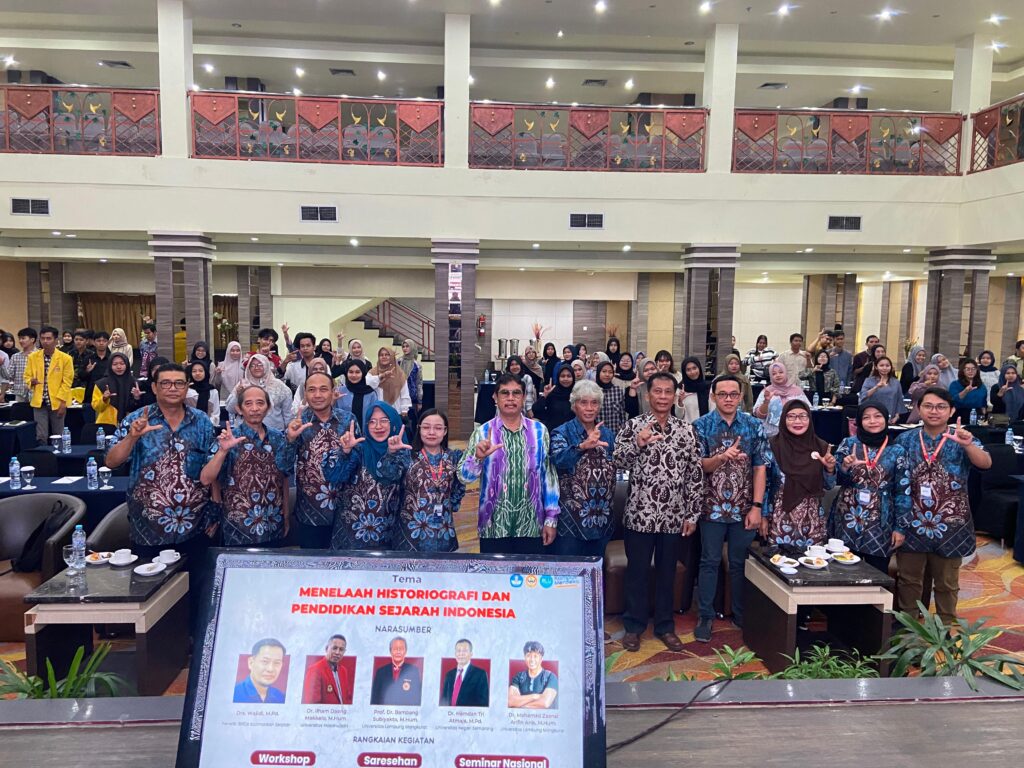08/06/2024

Banjarmasin – As part of a series of activities for the 5th National Conference on History Education, the History Education Study Program of the Faculty of Teacher Training and Education (FKIP), Lambung Mangkurat University (ULM) held a National Seminar with the theme “Historiography and Indonesian History Education”. The activity was held at the Aria Barito Hotel on Saturday, June 8, 2024 starting at 08.00 WITA and was opened by the Dean of FKIP ULM who is also a Professor of Physical Education PS FKIP ULM, Sunarno Basuki. In his remarks, Sunarno Basuki reminded that in the future, there are more challenges for the faculty and PS. “We are asked to continue to multiply achievements, improve the academic atmosphere, improve infrastructure,” he said.
This activity was attended by students, history teachers, representatives of PS in FKIP ULM, and history lovers community. The speakers for this activity were Zaenal Arifin Anis, a lecturer at ULM’s History Education Study Program and Hamdan Tri Atmaja from Semarang State University (Unnes). Zaenal Anis delivered material entitled “Historiography: Moaning in Understanding”, while Hamdan Tri Atmaja delivered on “Hegemony, Habituation, and Pedagogics in History Education.”
In his presentation, Zaenal Anis explained about two feuds in Historiography or the science that studies historical writing, namely historical writing that tends to the political perspective practiced by Ranke in the 19th century and historical writing that tends to the social perspective run by Eric Hobsbawn and E.P Thomson in the following century.
Meanwhile, Hamdan explained the importance of critical pedagogy in writing history, namely by (1) identifying relevant and contextual topics, (2) analyzing historical sources, (3) facilitating class discussions, (4) collaborative projects and research, (5) using multimedia and technology, (6) developing social action, (7) process and product-based evaluation, and (8) reflection and self-awareness.
The head of the committee, Sriwati, said that this conference is a routine program every year in History Education. Because this is the peak event and brings in speakers from outside the ULM institution, we continue to coordinate regularly. Especially coordination between committees related to their respective duties. “In a routine meeting held every week, each organizing committee will report the progress of its work,” she said, explaining the process of preparing for the activity. (admin)
